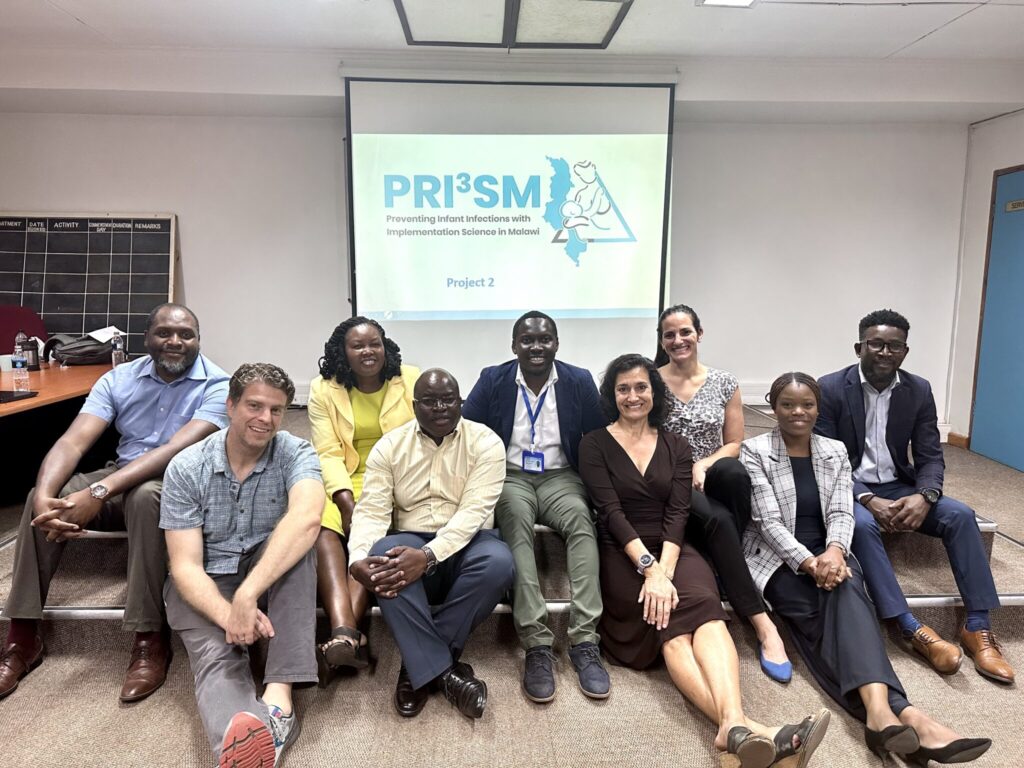Led by Mina Hosseinipour, MD, MPH, the NIH’s National Institute of Child Health and Human Development (NICHD), has funded the project “Preventing Infant Infections with Implementation Science in Malawi” (PRI3SM). The program, in partnership with the Republic of Malawi’s Ministry of Health, comprises three studies to address gaps in prevention services, striving for elimination of vertical transmission of HIV, aligned with an integrated training framework that highlights ‘homegrown’ early investigators as leaders of the projects. It also demonstrates the best of capacity building, where a shift in health expertise and leadership has taken place.

UNC-Project Malawian faculty in leadership roles include Friday Saidi, MD (OB/GYN), Lameck Chinula, MD (OB/GYN), Tisungane Mvalo, MD (Pediatrics), Mitch Matoga, MBBS, PhD candidate (Implementation Science), Agatha Bula, PhD, MPH, RNM (Qualitative Research), and Maganizo Chagomerana, PhD (Data Analytics). Sarah Rutstein, MD, PhD, and Michael E. Herce, MD, MPH, MSCR, faculty who were previously ID fellows, round out the early career investigators. The team is supported by the strong leadership of Rose Nyirenda (PhD candidate), the director of the Malawi Ministry of Health’s Department of HIV, Sexually Transmitted Diseases and Hepatitis, and her team. The program is also supported by PEPFAR and its implementing partners, and complementary local stakeholders.
Read more from the UNC Institute for Global Health and Infectious Diseases.
